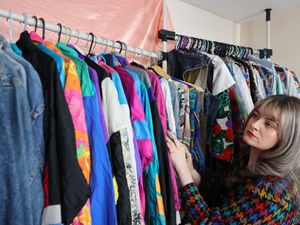New EU Russian sanctions could trigger major export delays
Manufacturers of iron, steel or steel products could be sleepwalking into an export disaster when new EU Russian Sanctions come into force later this week.
The West Bromwich-based Confederation of British Metalforming is urging companies to urgently explore the legislation, which requires evidence that iron and steel used to produce components in a third country (outside the EU, including the UK) does not originate from Russia.
Material test certificates will be required from Saturday, September 30 to confirm the facility and location at which the material was originally melted and poured as well as for secondary steel processes.
CBM president Stephen Morley is predicting that many firms will be unaware of this change to exporting and it could cause products to be delayed at customs and, in some instances, trigger catastrophic production stoppages in critical automotive and aerospace sectors.
“It is important to recognise that the scope of the EU measures on iron and steel products extends far beyond primary and secondary steel products to encompass many finished goods, including fasteners and other industrial consumables. They will also cover many ‘retail’ products, such as stoves, cookers and kitchen and sanitary ware.
“We have been warning our 200-strong membership body for more than a month now, working with them to ensure they are able to provide the required evidence at point of importation.
“Effectively, it is a case of prepare for the worst-case scenario, while fervently hoping that EU authorities recognise that the stringency of compliance requirements will jeopardise the flow of UK to EU supply chains," he explained.
Since alerting members to this growing issue, the CBM has been working closely with national audit, tax, advisory and risk firm Crowe and its expert customs team to validate its assessment and to interrogate the recently released frequently asked questions guidance by The European Commission.
CBM, which supports UK manufacturers of fasteners, forgings and pressings, cold-rolled and sheet metal products, is deeply concerned that other associations and industrial membership bodies do not appear to have recognised the significance of the new sanctions and the massive hit on export trade it could bring.
Mr Morley, who has been involved in industry for four decades, continued: “There’s a lot of mixed messaging out there currently, with some suggestions that German Customs may take a more pragmatic view about what evidence is required, whilst the latest info from Belgium and France suggest a more stringent approach.
“It’s so confusing for bosses that are already struggling with the impact of increased admin and trying to grapple with extortionate inflationary pressures and energy prices. It’s one more spectre on the horizon that we could all do without.”
Following continue pressing of the Department for Business and Trade, the CBM has finally received information from the UK, and it appears this country is following a similar route to the European Union.
Mr Morley asded: “The wording implies more flexibility on the part of UK Customs authorities; however, evidence is still required on the country of origin of the iron and streel products processed in the third country (or third countries).
“This includes Mill Test Certificates, but other documentation may be acceptable and we’re just seeking further clarification on this.
“These sanctions – across the board – could have a dramatic impact on both UK exporters and importers, with many of our members bringing in their steel from all over the world. It’s a delicate issue and our best advice is to plan ahead to avoid any supply chain disruption.”





